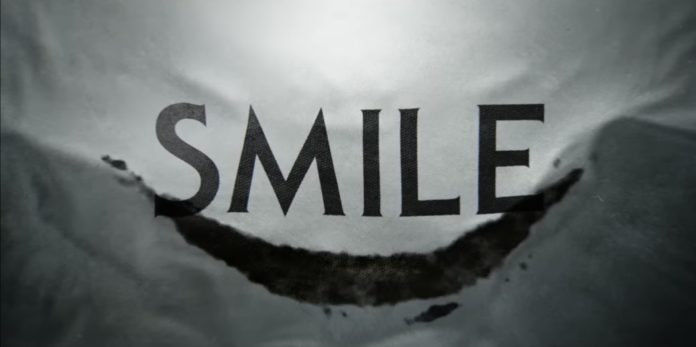
Content warning: This review mentions suicide reader discretion is advised
Smile begins with a suicide. It is a story about the horrors of mental illness and the way lingering trauma warps one’s perception of the world and entire identity. It’s a bold way to begin a film, but it encapsulates what will become the film’s weaknesses and strengths.
Smile is undoubtedly going to scratch the itch experienced by many psychological horror fans. While it never reaches the heights of recent tales of terror like Hereditary or The Lighthouse, its nods to the investigative time based horror of Ringu and It Follows is surely enough to keep its audience entertained.
Smile is not subtle in the slightest.
While its themes are one of the film’s strong suits, you’d be forgiven for thinking that beginning the movie about trauma with a sudden suicide is a bit too obvious of a way to explore that theme.
At times the movie feels less like a psychological horror and more like an excuse to showcase a bunch of jump scares. In all honesty, as someone who usually hates jump scares, a few of these actually got to me.
The protagonist, Dr. Rose Cotter is someone with a past she’d rather not share. Images of her late mother haunt her day-to-day life. For better or worse, her trauma is not something she can necessarily escape and she never tries to.
Unfortunately, the film also does not leave you guessing about these aspects of Rose’s character. Rose’s identity is informed by her trauma. Her career path as a therapist working in the mental health ward of a public hospital speaks greatly to her experiences with mental health struggles. She values helping her patients over making as much money as possible.
Smile creates an impending dread that builds as the film hurtles towards its climax.
There’s a distressing but, all too often, uncomfortable honesty about the nature of mental illness found in Smile. Its antagonist is an unnamed entity that follows Rose wherever she goes, constantly feeding on her worst fears and changing her from a confident professional to a spiraling train wreck. While not very original, the concept of the bad guy being a personification of trauma and mental illness works with the film’s all-consuming antagonist force that cannot be stopped.
The way the ending works with the themes of dread and insanity makes Smile a must-see.
All-in-all, it is a decent film. Its themes are interesting enough to carry it on through to its fantastic finale. The cinematography is also worth mentioning: some of the shots are visually stunning.
It is still worth looking into for those who tend to enjoy their horror to be a bit more cerebral — just know you’re going into a jump scare fest.
